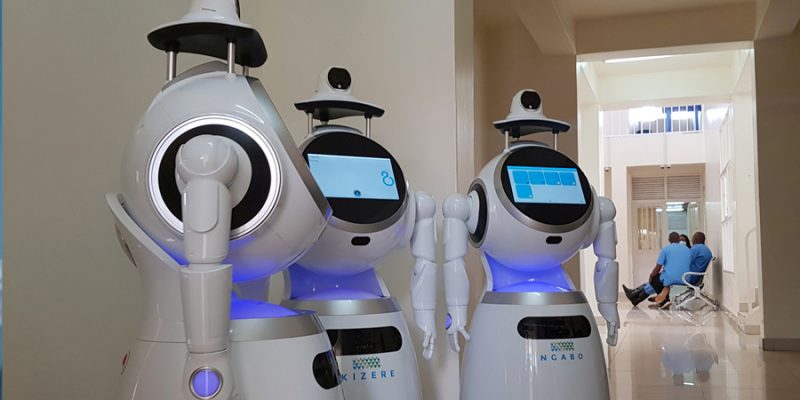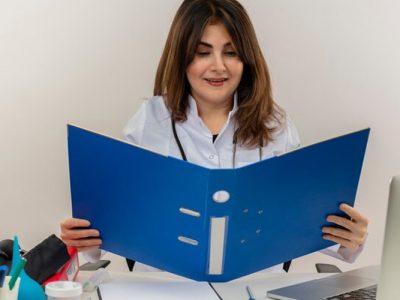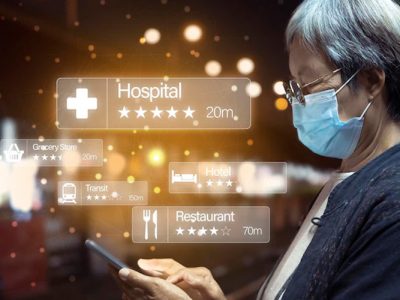
Healthcare bots increasingly attracting a bulk of responsibilities in the field of medical applications
Robotics in healthcare have been invented around the late 18th century. Besides, limited media coverage, lack of trust in automated applications for healthcare, have led to its slow adoption in the healthcare industry. Certainly, caused it to still strive to make its place, despite efficiencies demonstrated to a large extent. Starting from logistics involved in healthcare to medical applications, healthcare bots have fuelled the operations, wherever they could make their little presence. Medical robots are available in various forms such as surgical robots, rehabilitation robots, logistical robots, and many more. Implying the efficiency of machine learning, in constructing robots for every aspect.
Facilitating a high-quality patient care environment, workforce efficiency, operational benefits in healthcare management, and assisting in supply chain activities, healthcare bots empowered by machine learning algorithms, encourage multiple medical applications to successfully occur. Therefore, 5 of the best medical applications presented by healthcare bots are listed below:
Laboratory Operations
Test labs are often overwhelmed, especially during epidemics and pandemics like now, thus, the pressure becomes unmanageable sometimes. Performing repetitive and mundane tasks over thousands and lakhs of samples per day is an inevitably tedious job. This increases the likelihood of human errors, thus, medical applications like this, are usually deployed with healthcare bots, to facilitate rapid and coherent results. Apart from epidemics and pandemics, during normal times, labs are inundated with innumerable samples to examine in a day, as diseases across the world are not few, owing to the billion types of genetic existence.
Laser Surgery
Performing surgery is one of the most acknowledged and appreciated medical applications of healthcare bots. Besides, ensuring precision and efficiency, medical robots or surgical robots, these days are also implementing surgery, without even coming in contact with the human body, through laser technology. Ablation and other related surgeries are performed meticulously.
Neurosurgery
Healthcare bots and surgeons work collaboratively in neurosurgeries, to extract the best results. Usually, neurosurgery involves huge risks, as nerves and veins are interlinked with various organs of the body and are immensely thin, thus demanding precision. Medical robots help the surgeons get a clear view of the area through a computer-mediated view, as they position a digital microscope. The surgeons according to convenience can either direct the healthcare bot to move or can move it by themselves for a greater reach.
Packaging
Pharmaceutical supplies like medicines, healthcare tools, and devices are packaged with the utmost care, in order to assure safety and hygiene. Such hygienic medical applications need delicate handling. Human hands are susceptible to contamination of the supplies, thus, there is a crucial need for a system, that can perform the diligent task with a touch of safety… Therefore, healthcare bots or medical robots, are encouraged to employ, to perform healthcare-related packaging.
Physiotherapy
Healthcare bots emulating physiotherapists are an interesting phenomenon to bring into the light. Full body massage or spas are popular these days and with growing concerns of mental health, such relaxing therapies are essential. Massage Robots are equipped with rollers and algorithms, to perform the full-body massage of human beings, which seem to be a treat to the body. Alongside, these therapeutic robots are also efficient in the rehabilitation of patients, who go through impairment, followed by restorative surgery.
A New Phenomenon
Interestingly, healthcare bots can operate both automatically as well as collaboratively. Collaborative robots in healthcare are often termed cobots. They exhibit their qualities in both surgical robotics as well as non-surgical robotics. Perhaps, the ability of collaborative robots ensures solving critical healthcare issues, with an impressive outcome. Thus, expanding opportunities for medical robots in healthcare.



















